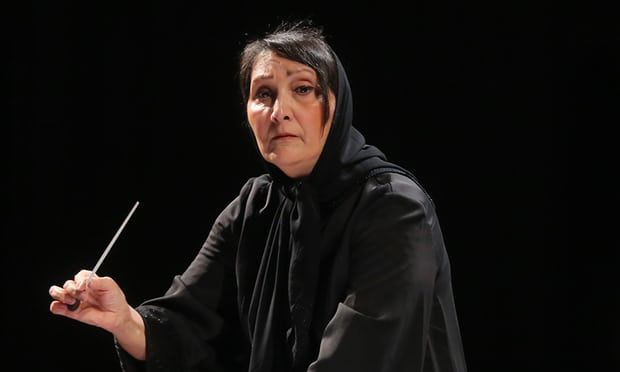
After the Iranian revolution in 1979, the country started a crackdown on music – even banning traditional Persian music. Restrictions have recently loosened — with pop, rock and even rap becoming popular. But, according to the Guardian, “the laws and codes governing the arts are ambiguous and, at times, arbitrary, and female musicians, in particular, face bigger and more fundamental problems.”
There is some encouraging news on that front as legendary female conductor, Nezhat Amiri, 57, recently lead a 71-member orchestra where they performed at Tehran’s most prestigious concert hall, and caped a nearly 40 year old fight for recognition. “From the beginning, I’ve swum against the current – I wasn’t seen, the society didn’t make any effort to nurture my skills and the ruling establishment turned its back on me,” says Ms. Amiri. “But I’m still doing it, I’m showing that there are ways, and there will always be.”
Ms. Amiri holds a master’s degree in music composition from Tehran Arts University and studied under acclaimed musician Parviz Mansouri. Her recent lauded performance was part of the annual state Fajr music festival, where she conducted three pieces by masters of Persian classical music, including a work by legendary composer Morteza Hannaneh, and featured a healthy percentage of female musicians.
“You face so many challenges when you’re a musician [in Iran],” says Ms. Amiri. “We have lost generations of musicians, theoreticians, music historians – some people in this country have given their lives for music.”



